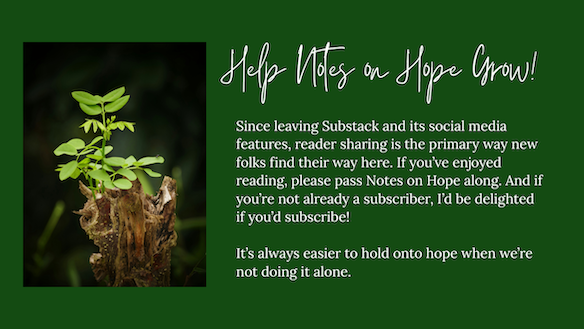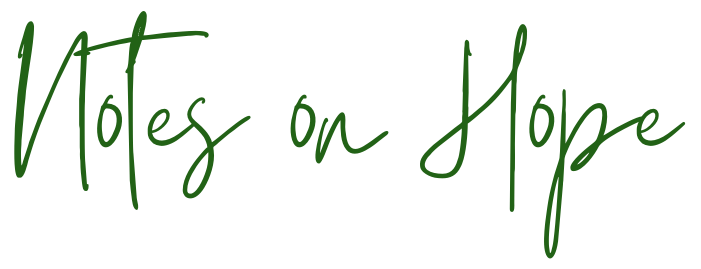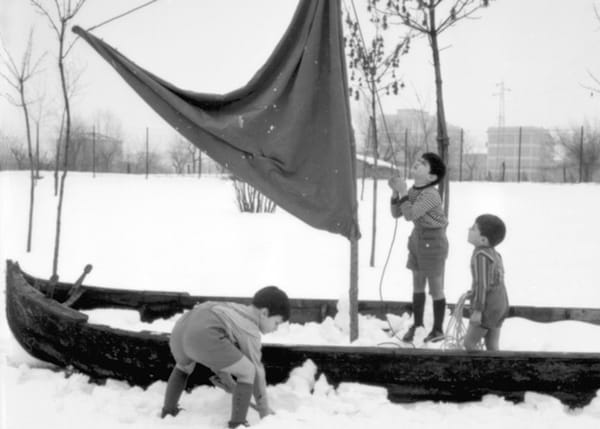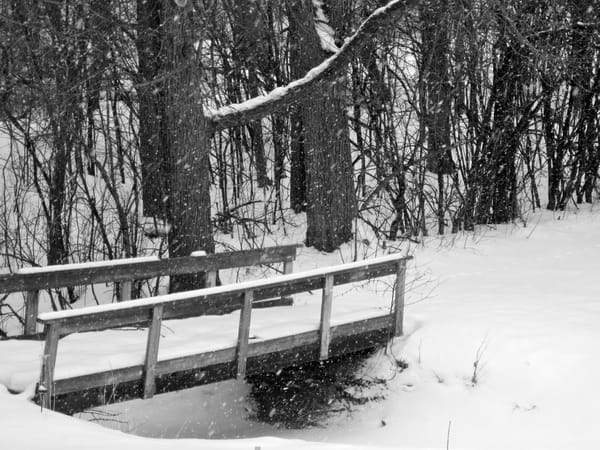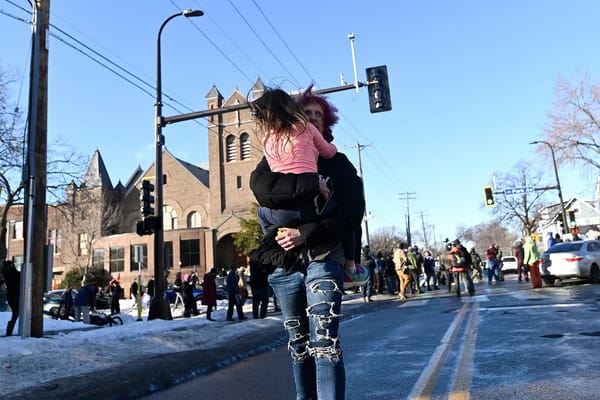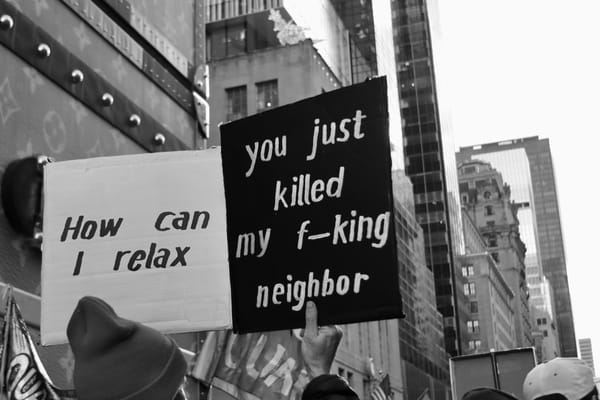How We Keep Going
On stumbling and doubting and continuing to hope and care anyway
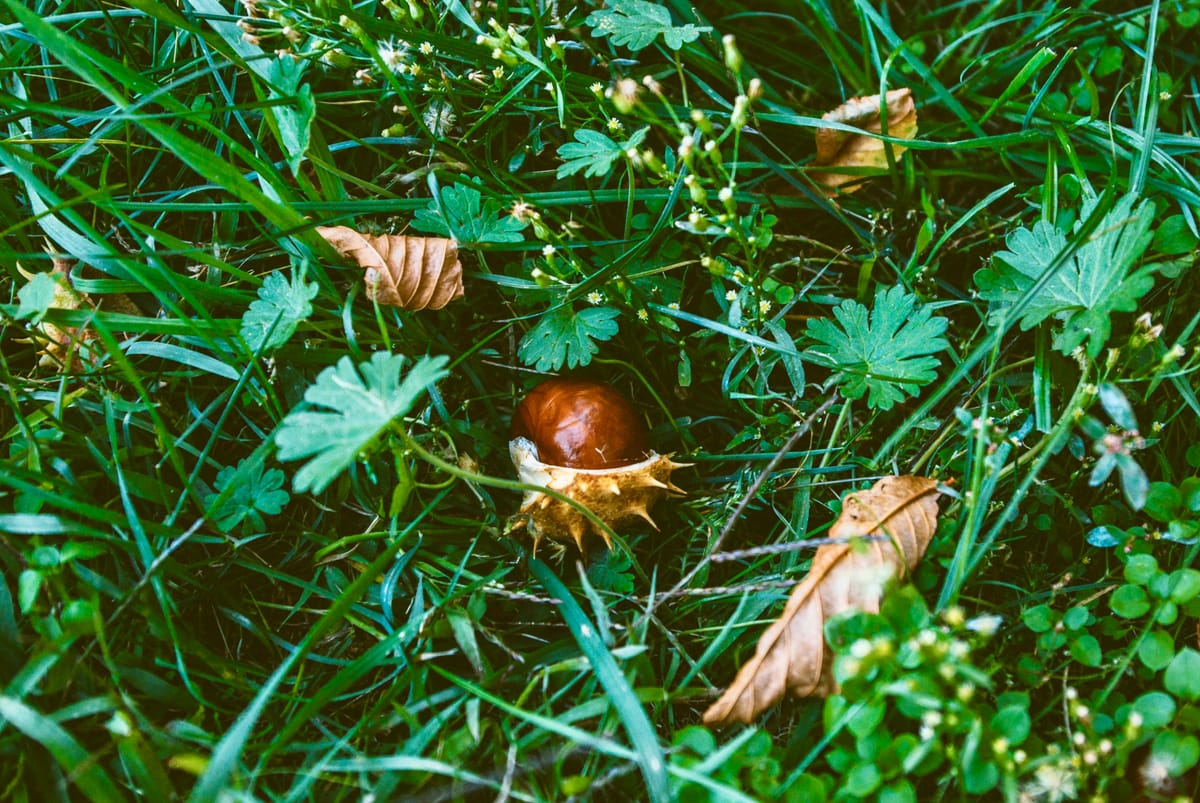
“It may be that when we no longer know what to do
we have come to our real work,
and that when we no longer know which way to go
we have come to our real journey.
The mind that is not baffled is not employed.
The impeded stream is the one that sings.”
~Wendell Berry
A precarious aspect of writing about hope each week—and, more specifically, about the relationship between hope, empathy, and action—is that this framing can sometimes lead to a very specific kind of writer’s block, which stems from an acute awareness of my own limitations in living up to these values. When I write about how we ought to take care of each other, I can’t help but think of the specific people who might read those words and rightly note instances when I failed to take care of them. When I write about our obligation to actively work toward a better future, I can’t help but think of all the steps I’ve meant to take and left undone. And when I write about remaining curious and open to the unexpected, I can’t help but think of the many moments when I may have caused harm by rushing to a judgement or an assumption. The list goes on. All these missed opportunities for hope and care are easy to compile and can quickly lead to paralysis.
But, when this specific paralysis creeps in, I remind myself that I didn’t set out to write about the themes of hope and care because these are easy values to hold onto and live into with perfect consistency. I started writing about these themes because of their fragility. It’s difficult to remain hopeful in perilous times, and it can be difficult to act with compassion when we are so often overwhelmed and seemingly surrounded by callousness. Interpreting our challenging reality through a lens of hope, and acting with the care that a perspective of possibility demands, is harder than sinking into cynicism. Hope and empathy require more effort than apathy, and we all fail constantly.
When I began writing Notes on Hope, I said that writing about these themes helps me stay tender and brave, and that I hoped reading might help you to do the same. This is what I continually remind myself—that I write, not because I possess any particular secrets or infallibility, but because this is heavy work for all of us, and the act of putting language to our biggest challenges can be clarifying and can serve as a practice of accountability.
We humans are deeply fallible. We make mistakes, falter, and cause harm no matter how worthy our intentions may be. We are also not making choices in a vacuum. Each of us is almost always navigating complex and conflicting variables that stretch our outlook, our compassion, and our means. The simple ethics dilemmas of intro philosophy classes usually don’t reflect the messy ambiguity of our lived reality. We stumble and fall short constantly. But our task isn’t perfection. It is to resist becoming numb and frozen in inaction by the tendency to either ignore our own failings or the failings of the world around us, or to endlessly enumerate them.
Hope isn’t easy. Compassion isn’t easy. Working toward a better future in the face of all that seems to be dragging us, instead, toward a dark past isn’t easy. We all fail to uphold these values at least as often as we succeed. But, if the first step in bending the arc of the moral universe toward justice is to try to bend our own, personal moral arc, then all we can do is honestly acknowledge the times when we have faltered and try to do a little better and to be a little more consistent each day. Hope, at its most basic level, is simply holding fast to the idea that this work remains worthwhile, even when it’s hard and even when the odds seem stacked against the outcomes we wish for, in ourselves and in the world.
The writer and activist, Mariame Kaba, often says that, “hope is a discipline.” I like this definition, because it pulls hope down from the ether, as an amorphous emotional experience, and transforms it into a practice. If hope is a discipline, then, by definition, it doesn’t exist in some perfect form that we’re passively waiting to experience. Instead, hope is something we are always working toward. The origin of the word discipline is simply “to learn.” So, if hope is a discipline, then we needn’t worry so much about holding it with unwavering faith, because it is something we are constantly learning and honing. Hope can’t simply slip through our fingers like a passing mood, and it isn’t a temperament or a disposition that we either possess or don’t, if it’s something we are able to work at, refine, sometimes fail to realize, and continue to practice.
Hand in hand with this conception of hope is the work of compassion, which I think of as the enactment of hope, because any gesture of compassion is rooted in the belief that it’s always worth acting as if things could get better, no matter what the present moment appears to deem likely. The alternative is cynicism and the outcome of cynicism is inevitably callousness, because if we allow ourselves to believe that there is no possibility of anything getting better, then we risk allowing harm to become meaningless and, by extension, acceptable.

I’m struck by the fact that the essayist and poet, Hanif Abdurraqib, who has struggled throughout his life with depression and suicidality, defines despair in much the same way that I define hope. In a time when so many of the events unfolding at every level—locally, nationally, and globally—feel particularly worthy of despair, I find this overlap in definitions essential, not contradictory. Abdurraqib describes a relationship with despair that is honest but also proactive, which is likely not how most of us think about despair. He says,
“What I love about the heart is that it’s capable of breaking in infinite ways; may we never live long enough to experience all of them, but may we live long enough to experience the ways the heart can repair itself for subsequent breakings. The cycle of rupture and repair is a requirement of living, a cost of surviving.”
He goes on to describe his relationship with a community of elders, whom he observes are often working actively toward a better world, despite both the fact that they will likely not live to see the fruits of their actions and the fact that so much evidence right now points to the potential for circumstances to grow more dire rather than less. He says of these elders,
“These are people who firmly understand that they are counting time in units of a few years, or a good handful of months, and yet they worry about the world. They ache for it, they are displeased by what they see, and still they organize, in the small ways they can—by donating clothes, or by ordering a bus to take them to go and vote. I won’t claim to know exactly how they would define their range of feelings. But my heart is broken and repaired by them, in equal measure. They are aware of the limited time they have left, and aware that their time on earth may stop while the time of their grandchildren, or children, or anyone younger than them whom they love, will continue on—and what a shame to see a world growing more undeserving of their beloveds each day—and so they spend at least some of whatever time they have left stitching together small pieces that, eventually, might make something big enough to be meaningful. I think of those folks when I am working to shape my relationship with despair into something proactive.”
Though Abdurraqib, himself, sees hope in the more traditional way—as something that is ephemeral, elusive, and consequently not particularly useful—his description of the process of shaping despair into something proactive actually aligns very directly with the way that I conceptualize hope. The “discipline” of hope, to use Kaba’s phrase, isn’t one of ignoring the worst actions of humanity or even our own personal failures, but rather of finding ways to hold our failings, and even our despair, honestly, while still remaining committed to trying to do better by one another. Hope, to me, isn’t about the odds of things going well but rather about our obligations to each other, regardless of what the future might hold.
If the options are to contribute to suffering or to try to alleviate it, it seems that it’s always preferable to try to orient ourselves toward care rather than apathy, and this necessitates a baseline belief that whatever measure of care we are able to muster today could make some degree of difference. Hope doesn’t require our perfection or our certainty. Hope only requires a sliver of possibility, and that sliver can be as small as improving one person’s day in an incremental way or as expansive as the butterfly that changes the weather far from the flutter of its own small wings in unknown, unpredictable, and incalculable ways.
Mariame Kaba describes this as “living in the maybe.” She says,
“We are living in times where much is beyond our personal control and we are swimming in a sea of uncertainty. Rather than allowing ourselves to be swallowed by fear because the present and future are uncertain, what if we tried to inhabit and embrace possibility? What if we live in the ‘Maybe’ during what are undoubtedly difficult times? [...]
I don’t think that we are *doomed or cooked*. I think more than ever that we must put our energies and our attention towards protecting the most vulnerable people right now, and to make things a little bit better in the corner of the world we live in. Barbara Marx Hubbard says that our task is ‘to hospice what’s dying and midwife what’s being born.’ There’s a lot to do and a lot to grieve and a lot to organize against and there’s also living to do and beauty to behold.”
This perspective on hope and action reminds me of a story, attributed to a variety of sources from Martin Luther to an ancient rabbi, in which a wise figure, asked what he would do if he knew the world was ending, replies, "If I knew that tomorrow was the end of the world, I would plant a tree today.”
Despair and hope are always intertwined, but, whatever the future holds, doesn’t it always remain better to act according to the possibility that what we do today might matter, than to sink into inaction, assuming it won’t?
All of this is hard to do, especially when we’re constantly overwhelmed and swimming in uncertainty. And that’s the point. We are bound to fail frequently at transforming our fear and uncertainty into proactive, hopeful, compassionate action, particularly in a world that often makes the business of mere survival so challenging. The discipline of hope doesn’t require that we ignore the deep challenges of the world or of our own personal lives, nor does it require that we downplay the extent to which these challenges can feel intractable. It only requires that we view planting a seed today as more valuable and more filled with potential than not planting a seed.
We don’t have to be sure of the outcome of our efforts. And we don’t have to live them out perfectly each day. We only have to hold onto the discipline of continuing to act on the possibility that our actions might matter and commit—when we fail or when we are tempted by cynicism or when others fail us—to doing a little more or a little better today than we did yesterday anyway.
Mychal Threets, the literary ambassador and PBS Kids’ resident librarian, said recently, “Feeling helpless is a response of human kindness. Doing something is a response of human kindness.” The duality of these truths is what we have to keep struggling to hold onto, not as a blind faith but as a discipline—as a process of continual learning.
Wishing you gentleness when the problems feel too big or when you fall short, and the discipline to keep hoping, caring, and learning anyway,
Alicia
A few things I found helpful and hopeful this week…
- What It Means to Stay Open-Hearted in a Wounded World
- An Open Letter: We Have Been Commanded
- A tool for finding the most at risk public radio stations to donate to
- Alternative LGBTQ+ services, as 988's LGBTQ+ support is shut down
- Two ways to help feed children who are starving in Gaza: World Central Kitchen (which resumed service this week) and Gaza Soup Kitchen.
